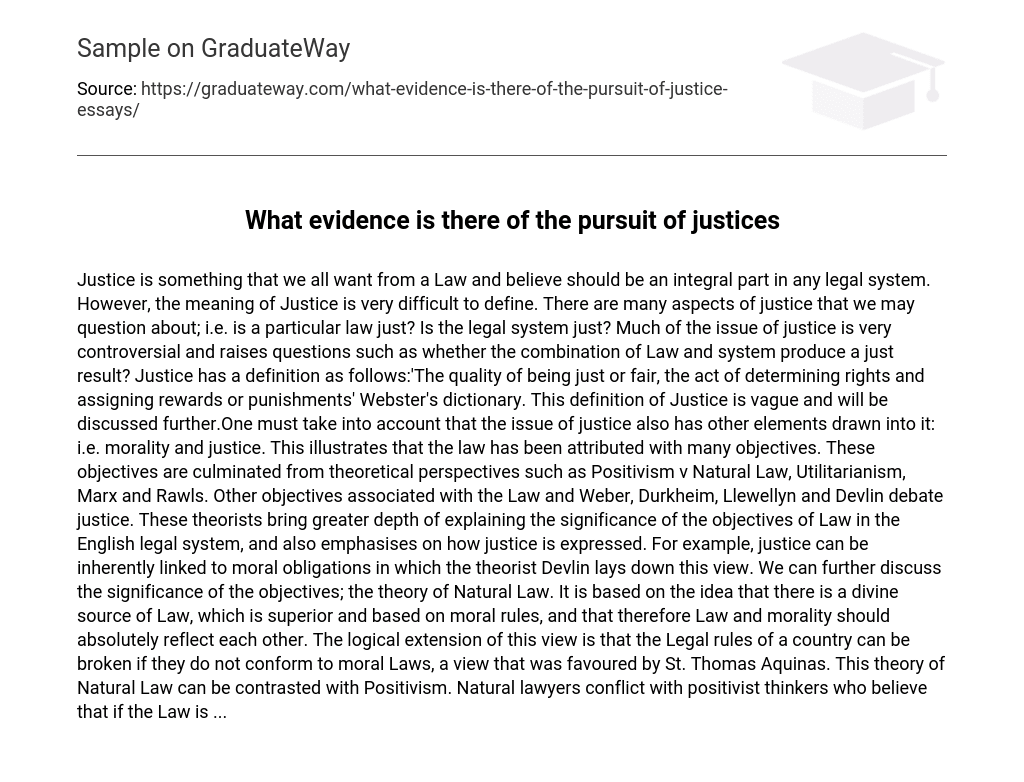Justice is an essential aspect that we all desire and expect in the legal system.
However, defining the concept of Justice is a challenging task. There are numerous aspects of justice that warrant questioning. For instance, is a specific law deemed just? Is the legal system considered just? Overall, the subject of justice is highly controversial and prompts inquiries regarding the fairness of the combination of Law and system in producing just outcomes. According to Webster’s dictionary, Justice is defined as “the quality of being just or fair, the act of determining rights and assigning rewards or punishments.” However, this definition is quite vague and requires further discussion. It is crucial to acknowledge that the issue of justice also encompasses other components, including morality. This point highlights that the law serves several objectives.
These goals are derived from various theoretical perspectives, including Positivism v Natural Law, Utilitarianism, Marx, and Rawls. Additionally, objectives related to Law and Weber, Durkheim, Llewellyn, and Devlin contribute to the debate on justice. These theorists provide a deeper understanding of the importance of Law objectives in the English legal system and stress the expression of justice. For instance, Devlin argues that justice can be inherently connected to moral responsibilities.
We can discuss the significance of the objectives, specifically the theory of Natural Law. According to this theory, there exists a divine source of Law that is superior and based on moral rules. Therefore, Law and morality should align completely. This perspective also suggests that Legal rules of a country can be violated if they do not comply with moral Laws. St. Thomas Aquinas was a proponent of this viewpoint. In contrast, Positivism opposes the ideas of Natural lawyers, as positivist thinkers believe that Law is …





